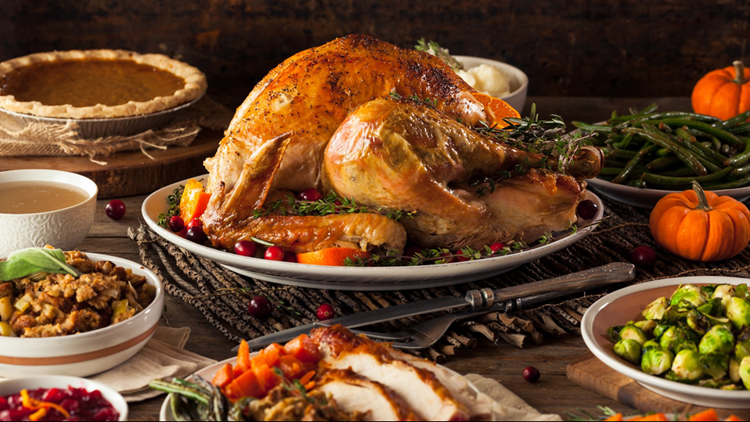VERIFY QUESTION
It is a staple of nearly every Thanksgiving meal and has prompted a Thanksgiving nickname -- turkey, of course, on "Turkey Day!" In between bites of delicious white or dark meat, have you ever paused to wonder why we eat turkey on Thanksgiving?
VERIFY SOURCE
- Britannica Encyclopedia
- Country Living
- University of Minnesota food historian
VERIFY PROCESS
Most people assume the traditional Thanksgiving feast originated with pilgrims at Plymouth Colony in 1621. There is evidence the pilgrims and Wampanoag Native Americans shared a meal, but there is no proof they ate turkey. The Wampanoag provided deer meet, and the pilgrims brought wild fowl. Yes, fowl means bird, which could include turkey, but most likely the fowl was duck or geese.
By the 19th century, turkeys were abundant and available for slaughter. Cows and hens had purposes other than meat, like milk or eggs. But, farmers raised turkeys primarily for food, and a single turkey usually could feed an entire family.
However, turkeys still weren't associated with Thanksgiving until the mid-1800s. Charles Dickens's A Christmas Carol pushed the narrative of turkey as a holiday meal. Author Sara Josepha Hale's novel Northwood included a vivid description of a Thanksgiving meal with a roasted turkey at the head of the table.
The tradition stuck, and modern breeding practices have made turkeys larger and cheaper. The USDA weekly report shows the wholesale price for fresh turkey is $1.12 a pound, and the retail price is $1.51 a pound.
VERIFY CONCLUSION
Turkeys weren't always associated with Thanksgiving, but over time they have cultivated tradition.
Do you have a VERIFY inquiry? Send a written or selfie video question to Meghann Mollerus:
Facebook: Meghann Mollerus News
Twitter: @MeghannMollerus
E-mail: Mmollerus@wfmy.com



